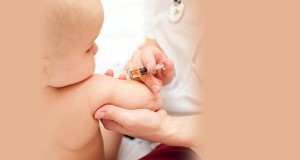Washington -The hunt for an HIV vaccine has gobbled up $8bn in the past decade, and the failure of the most recent efficacy trial has delivered yet another setback to 26 years of efforts.
With the next attempts expected to be years away, top researchers now say there is a “void” or a “gap” in current clinical trial efforts to test whether a vaccine may be safe and effective in people.
A kind of ongoing autopsy of the last four major bids to make an HIV vaccine has informed the field as to what does not work, with the latest casualty being a trial called HVTN 505 that was halted early because it did not prevent HIV.
“It leaves us with a gap in several years before we have another HIV vaccine efficacy trial under way, and that is unfortunate,” said James Kublin, executive director of the HIV Vaccine Trials Network.
Another concern for researchers is that two vaccine trials – HVTN 505 and a previous trial known as STEP that ended unsuccessfully in 2007 – both revealed apparent increases in the number of vaccinated patients who got HIV.
No harm caused
HVTN 505 showed 41 cases of HIV were acquired in the vaccine group, compared to 31 in the placebo group. Among about 2 500 participants, the difference was not statistically significant, and so researchers found that no harm was caused by the trial.
“But the number is in the wrong direction,” said trial leader Scott Hammer, who described the trial’s outcome as a “disappointment.”
Researchers are still investigating why this may have happened, but some theorise the cold virus known as Ad5 that served as a vector to deliver the vaccine may have somehow caused more infections by making it easier for HIV to penetrate the body.
“You scratch your head,” said Hammer, a professor of medicine at Columbia University, adding that Ad5 may now be considered too risky and other options are being investigated.
“No one is going to want to a do a major trial with this sort of vector in the future,” he told AFP.
The key puzzle in the vaccine search has been the nature of the human immunodeficiency virus itself, which has managed to fool modern medicine by changing its genetic makeup so often that a single weapon cannot silence it.
More variable
“The virus is a very elusive foe,” said Wayne Koff, chief scientific officer at the International AIDS Vaccine Initiative (IAVI).
“It is more variable than almost any other virus that a vaccine has been attempted for. So if one wants to make antibodies against a virus that is variable, one has to have a broadly reactive antibody,” he told AFP.
A small number of HIV-positive people have been found to produce antibodies that can neutralise a broad range of HIV variants, but scientists have not yet figured out how to make a vaccine from that information.
“Lots of people are working on that very hard. I would have thought we would have that immunogen to test in phase I trials by now, but hopefully soon,” said Hammer, a leading HIV researcher.
About 34 million people are infected with HIV worldwide, and AIDS has killed 30 million people since the epidemic began 30 years ago.
The vaccine field has fallen short of expectations since 1984, when Margaret Heckler, who was then US secretary of Health and Human Services, declared a vaccine would be ready for testing in about two years’ time.
Effects waned
The first phase I trial of a vaccine began in 1987 at the National Institutes of Health in Bethesda, Maryland, and included 138 healthy volunteers. The first large-scale trials did not begin until the late 1990s.
The sole success story to date has been a trial in Thailand known as RV144, which in 2009 saw a modest, 31% rate of protection, still far below the 50% threshold needed in order to license a vaccine.
Researchers are continuing to study the results for clues as to why it worked in some cases but not others, and why it appears the protective effects may have waned over time.
A similar vaccine modelled for South Africans is expected to enter human trials in the next couple of years. Other approaches for increasing T-cell immunity are also on the horizon.
“I am an optimist. I think we are at least halfway there, hopefully further,” said Hammer. “The world needs an HIV vaccine.”
 Whitehouse Pharmacy Whitehouse Pharmacy
Whitehouse Pharmacy Whitehouse Pharmacy










